Old Faithful is ‘just a tiny fraction’ of Yellowstone National Park: What you don’t know
Most people already know a thing or two about Yellowstone National Park. It’s the world’s first national park and home to Old Faithful.
“Probably 95% of people that come to Yellowstone visit Old Faithful, but Old Faithful is just a tiny fraction of what Yellowstone National Park is all about,” said Richard Jehle, an interpretive specialist at Yellowstone. “There are so many places in Yellowstone that if they were by themselves, they would be their own national park. Yellowstone Lake, the Grand Canyon of the Yellowstone, Mammoth Hot Springs, other geyser basins like Norris Geyser Basin are all just spectacular resources in their own setting.”
Here’s what else travelers should know about Yellowstone, the latest national park in USA TODAY’s yearlong series.
What is Yellowstone famous for?
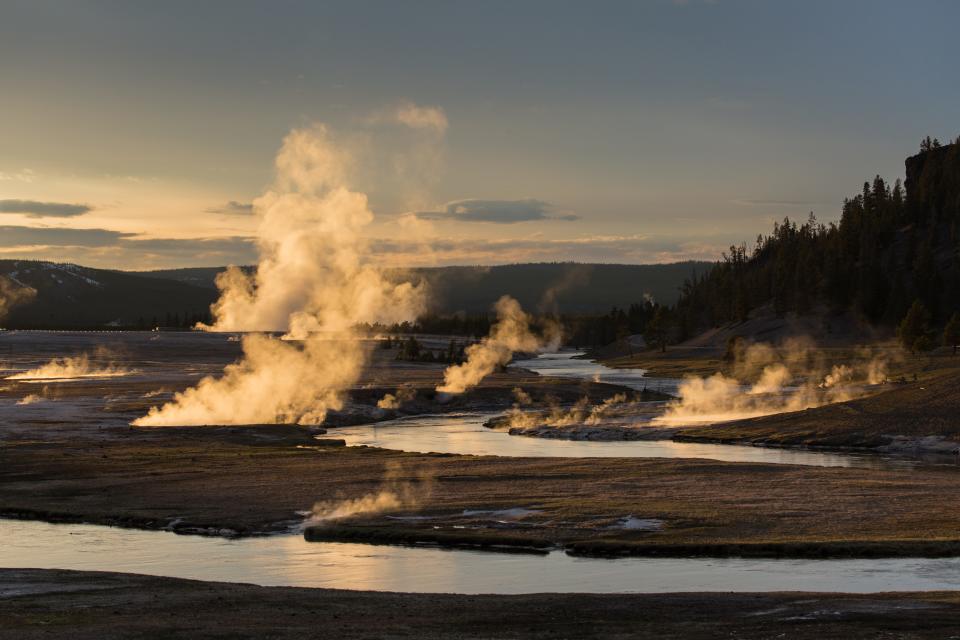
Yellowstone is known for its thermal features, like Old Faithful.
“A geyser is a hot spring that throws water up in the air. That's the rarest of the thermal features, but we've got probably 10,000 or more hot springs, fumaroles or steam vents or mudpots in the park as well,” Jehle said. “Just the geysers themselves, like Old Faithful, there's more in Yellowstone than the rest of the planet combined.”
He noted the park has the largest concentration of geysers and hot springs and thermal features anywhere in the world, but that’s not all.
“Yellowstone is also home to the largest concentration of native wildlife anywhere in the lower 48 states. More native species of wildlife like bison and elk and grizzly bears and moose and pronghorn are found here than anywhere else in the continental United States,” Jehle said, adding that the park is considered the largest relatively intact natural ecosystem anywhere in the temperate, mid-latitude section of the world. “So it's a large, more or less naturally functioning ecosystem, which is pretty rare these days. It covers almost 20 million acres, depending how you want to define it.”
Is Yellowstone in Montana or Wyoming?
Both. The park spans parts of three states: Montana, Wyoming and Idaho.
Story continues below.
Where do I fly into for Yellowstone?
Between May and mid-October, travelers can fly into Yellowstone Airport in West Yellowstone, Montana, on Delta or United.
Year-round, visitors can fly into airports in:
Cody and Jackson, Wyoming
Bozeman and Billings, Montana
Idaho Falls, Idaho
How much does it cost to get into Yellowstone National Park?
It costs $35 to enter Yellowstone National Park by private car. However, the park notes visitors coming in the south entrance have to travel through Grand Teton National Park, which charges its own entrance fee of $35 per car. Neither park requires vehicle entry reservations.
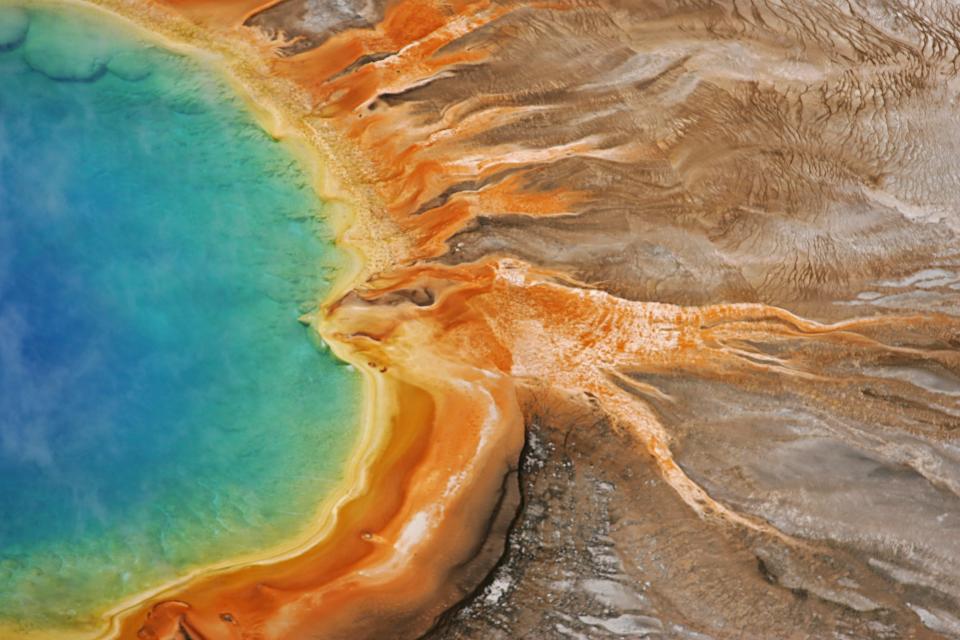
Can I see Yellowstone in one day?
No. “At a bare minimum, you need to have two full days to tour the park,” Jehle said.
He explained that’s partly due to the road system, which is laid out like a figure eight with a nearly 100-mile lower loop and roughly 70-mile upper loop.
“If you give yourself a complete full day – and I mean a full day – on each of those loops to allow yourself plenty of time to get around given traffic and wildlife and roads, you can get a pretty good feel for what the major features of Yellowstone are all about. But you can easily take a week; you can take two weeks and dive much more in depth,” he said, adding that he’s been there 35 years and is still learning about it.
What is the best time of year to go to Yellowstone National Park?
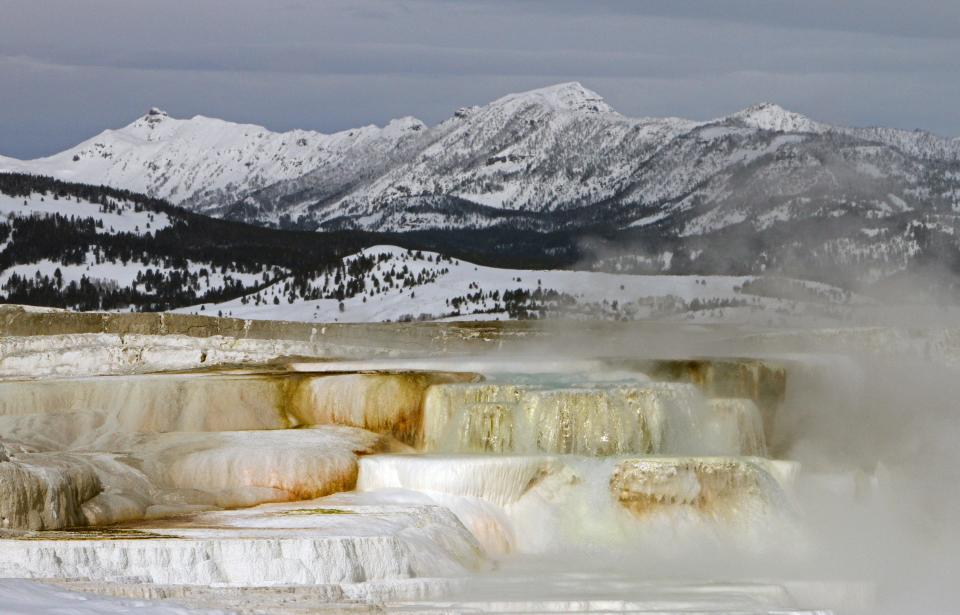
“Whenever it's open,” Jehle said. “Because it's a remarkable place, and it's never the same. Every day is different. You never know where where you're going to see something new or something magic.”
Summer is the most popular time to visit, though he said the shoulder seasons of spring and autumn have grown increasingly popular.
“Visiting Yellowstone in the winter is remarkable. It's like a totally different national park,” Jehle said. “Because of the cold, winter air, you will see geysers and thermal features that you don't even see in the summer because there's so much more steam. … And the wildlife viewing in the winter, in some ways, is better than in the summer.”
Visiting during the winter can be trickier because the park’s interior closes to cars starting in November. There is a 50-mile stretch of road between Gardiner and Cooke City, Montana, that stays open all year, but Jehle explained:
From Nov. 1 through Dec. 15, interior roads close to the public to allow enough snow to accumulate so roads can be groomed for snow vehicles.
From mid-December to mid-March, only snowmobiles and snowcoaches are allowed on interior roads, mostly on third-party guided trips. However, up to four groups of unguided visitors are allowed in the park daily with a lottery-based permit and other requirements.
Interior roads close to the public again after March 15, so the park can begin plowing roads.
Interior roads begin to open around the third Friday in April, but depending on conditions, some higher elevation roads might not be cleared until after Memorial Day.
Visitors can find the latest road closures and conditions on the park’s website.
How did Yellowstone get its name?
According to the United States Geological Survey, “the name was attributed as early as 1805 to Native Americans who were referring to yellow sandstones along the banks of the Yellowstone River in eastern Montana, several hundred miles downstream and northeast of the park.”
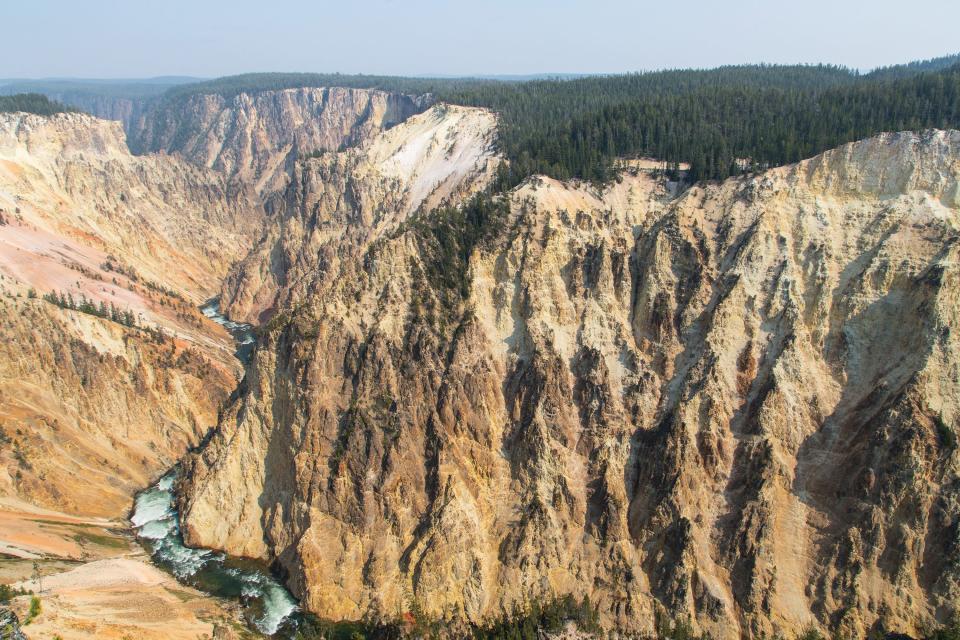
Are there any Native American people in Yellowstone?
Not residing there presently, aside from park staff. But the park’s website notes, “For thousands of years before Yellowstone became a national park, it was a place where people hunted, fished, gathered plants, quarried obsidian, and used the thermal waters for religious and medicinal purposes.”
There are 27 Native tribes with historic ties to the land, according to the park.
Assiniboine & Sioux Tribes of the Fort Peck Indian Reservation, Montana
Blackfeet Tribe of the Blackfeet Indian Reservation of Montana
Cheyenne River Sioux Tribe of the Cheyenne River Reservation, South Dakota
Coeur D'Alene Tribe
Comanche Nation, Oklahoma
Confederated Salish and Kootenai Tribes of the Flathead Reservation
Confederated Tribes of the Colville Reservation
Confederated Tribes of the Umatilla Indian Reservation
Crow Creek Sioux Tribe of the Crow Creek Reservation, South Dakota
Crow Tribe of Montana
Eastern Shoshone Tribe of the Wind River Reservation, Wyoming
Flandreau Santee Sioux Tribe of South Dakota
Fort Belknap Indian Community of the Fort Belknap Reservation of Montana
Kiowa Indian Tribe of Oklahoma
Little Shell Tribe of Chippewa Indians of Montana
Lower Brule Sioux Tribe of the Lower Brule Reservation, South Dakota
Nez Perce Tribe
Northern Arapaho Tribe of the Wind River Reservation, Wyoming
Northern Cheyenne Tribe of the Northern Cheyenne Indian Reservation, Montana
Oglala Sioux Tribe
Rosebud Sioux Tribe of the Rosebud Indian Reservation, South Dakota
Shoshone-Bannock Tribes of the Fort Hall Reservation
Sisseton-Wahpeton Oyate of the Lake Traverse Reservation, South Dakota
Spirit Lake Tribe, North Dakota
Standing Rock Sioux Tribe of North & South Dakota
Turtle Mountain Band of Chippewa Indians of North Dakota
Yankton Sioux Tribe of South Dakota
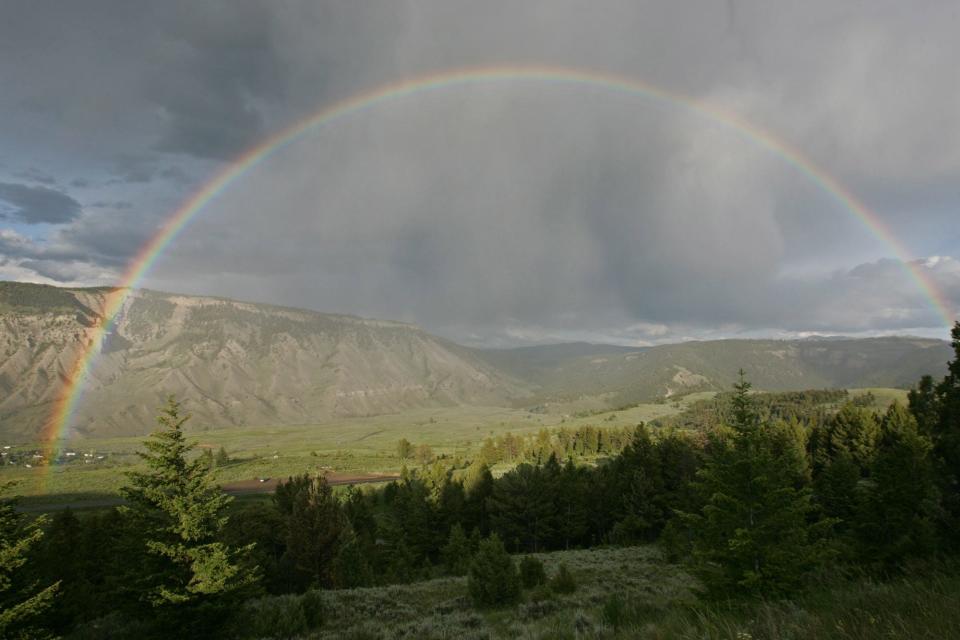
What else should people know about Yellowstone?
“Yellowstone is your national park,” Jehle said. “I'm lucky enough I work here. I get to live here, but I don't own Yellowstone. The owners of Yellowstone are the American public, the people of the world.”
“But with you know, with that comes a huge responsibility,” he added. “One of the primary reasons national parks exist is to pass on to the future, to our kids and their kids and their kids forever and ever in as good or a better condition as we found them. So by all means, come to Yellowstone, enjoy it, but take ownership of it and love it and pass it on.”
This article originally appeared on USA TODAY: Yellowstone National Park is so much more than Old Faithful

